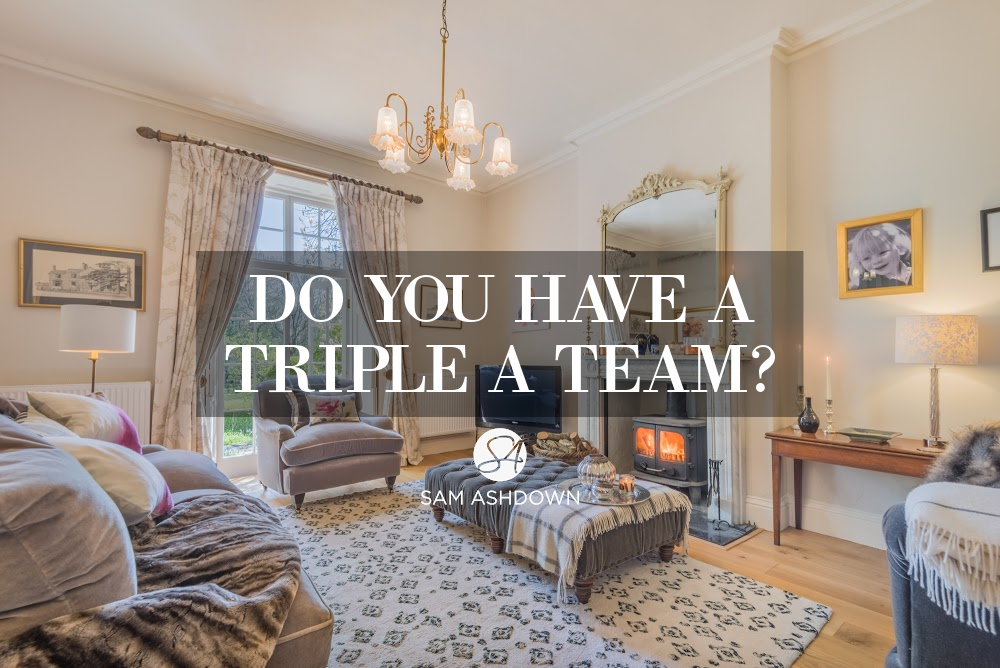It’s not easy to get hiring right. That senior negotiator you bribed away from the competition with a 25% pay rise turns out to be someone they were about to fire. And that girl you promoted from lettings was so promising, but she’s developed a mystery illness and is never in the office.
No one is ever fully happy with their team. And the preoccupation that dissatisfaction produces can cause you to take your eye off the big picture. You’re the captain, remember; it’s your job to keep the ship on course, no matter how inept or incompetent your crew members. Taking some time out of each day to make sure you’re still heading in the right direction is crucial, whether that’s analysing the numbers, plotting your key performance indicators, or creating a new marketing campaign.
Of course, we can’t ignore poor staffing. But once you have them on board, it’s usually already too late. If you have a team that aren’t helping you make the boat go faster, or even worse, slowing you down, you need to go back to your recruitment process, as that’s almost certainly where the problem lies.
Over the past fourteen years I’ve discussed recruitment with hundreds of agents and industry recruiters. And the result of these conversations is a simple formula to help guide your hires, and probably also your fires.
It’s the Triple A Standard:
Aptitude – Attitude – Appearance
ATTITUDE
Aptitude is what we generally hire people for, but it’s only part of the story. After all, their skills are probably the main motivator for hiring them. You’ve probably heard the saying “Hire for attitude, train for skill”? Attitude is how someone sees themselves and their place in the world. It’s something that’s hard to change in someone, so the attitude they come to you with, is the attitude they will have throughout their career with you.
It’s not always easy to read attitude in someone correctly, especially when they are on their best behaviour in the interview. So where are the clues?
There are five positive and helpful attitudes to look for when you’re hiring, appraising and training your team:
1. Respect – everyone needs to have an underlying respect for each other in your team. There is usually a natural pecking order, but if you’re not careful this can descend to unkindness at best, and bullying at worst. You need your team to pull together, particularly in times of crisis or additional pressure, and they can only do that if they have trust in and respect for each other.
2. Pride – is a really rewarding attitude and one that rubs off on other members of the team. There is individual pride, when someone is proud of what they have accomplished; perhaps getting a difficult sale over the line, or finding a demanding landlord a perfect tenant. Then there is team pride, where everyone takes satisfaction and pleasure of what the team has accomplished, perhaps smashing targets, or pulling together over a tricky project. Pride is what drives people, and gives them the ultimate in job satisfaction.
3. Commitment – are they committed to their job, the company and their team? If you see a lack of commitment it could be a red flag, or you could find your brand lacks clarity of purpose and mission. If someone in your team is slacking off, being lazy, missing days at work and generally showing a lack of commitment to their role and responsibilities, it will pull the whole team down. On the other hand, if someone demonstrates a dedication to the company’s vision, an attention to detail, and a determination to do their best, you know you have a loyal and faithful team member.
4. Innovation – you really want team members who are ready to embrace change and feel confident enough to bring you new ideas. Someone with a fixed mindset finds change difficult and will avoid it wherever possible. If you find someone with a growth mindset, you’ll have someone who is dedicated to their self-development, who will rise to challenges with enthusiasm, and who believes they can change their results by changing their outlook and actions. It’s important that you have a no-blame culture, so that your team members aren’t afraid to try new things and fail, but instead are encouraged to try new approaches – this is so important for your long-term company growth.
5. Helpfulness – this is a trait which starts at the top, with you, and works its way down through your team. Whether it’s offering to make someone a coffee, run to the post office, or just help with a laborious task, if you do it, you’re showing the rest of the team that collaboration is important and valued in your company. Helpfulness breeds better teamwork and eliminates unkindness and hierarchy in your agency. Ultimately your team will be stronger for you lending a hand when it really matters.
So you’ve checked for the five Attitudes: respect, pride, commitment, innovation and helpfulness, and your candidate has passed on all these traits. Now, let’s look at their skillset:
APTITUDE
Aptitude is someone’s natural or learned ability to do something.
Aptitudes to look for in a candidate could include industry-specific skills like
1. Valuing
2. Property photography
3. Lettings management
4. Compiling inventories
5. Local market knowledge
Or more generic skills like:
1. Listening
2. Problem-solving
3. Attention to detail
4. Empathy
5. Dedication to client happiness
6. Courtesy
7. Confidence
Having recently gone through a hiring process, my co-director Phil and I sat down to work out what skills we were looking for, and how to test those skills at interview. Here’s what we came up with:
A group interview format – this allowed us to see how the candidates would react to each other, as well as with us. It’s much easier to assess someone’s skillset and attitude, when you’re not engaged in a one-to-one conversation with them. By observing their behaviour, how they spoke to one another, and how they handled the tasks, we were able to more accurately evaluate their suitability for the job role.
Task-based interview – we came up with some listening, investigative and marketing ‘games’ to inject some fun and enjoyment, which not only caused the candidates to relax and show more of their real personalities, it also played a vital role in determining their skills.
One-to-one interviews – having undergone the group interview process, we then moved onto the one-to-ones, having already determined the most likely hire. This gave the candidates and us a confidential arena to ask pertinent questions.
APPEARANCE
A client recently asked me what I thought of a lady she’d just interviewed. She was seemingly very competent, and had a relevant career background, but sadly just didn’t look the part. She had blue hair, an eyebrow piercing and despite the fact she’d been coming to an interview, she was wearing a low cut top that showed a tattoo.
None of this would have been a problem if she was interviewing for a back office role, but she would be playing a key front-of-house position, so her appearance was a crucial part of the recruitment decision.
I asked my client which prestige brand (not just agency) does she align herself to? When she replied ‘Tiffany’s’, I suggested she shouldn’t employ anyone who she wouldn’t expect to see behind the counter in a Tiffany’s store.
Same goes for the other brands she feels aligned to, and she said Jo Malone and The White Company were both brands that not only did she personally love, but ones that she instinctively felt her ideal client would love too. Both Jo Malone and The White Company are beautiful, elegant brands with team members who look the part in every way.
Think of your core values – the very essence of your agency. Your service, what you stand for. Does that person’s appearance, attitude and aptitude portray your core values successfully?
When a new potential client comes into contact with your member of staff, will you feel embarrassed or proud? Tense or relaxed? Anxious or confident? Apparently, people take only seven seconds to determine whether someone looks professional and approachable. Long enough for you to lose the business from a client you would love to have.
If you have a brand you’ve worked hard to position as premium, as is the case with my client here, then the way your staff present themselves says more about your brand than you might think. No matter how professional and efficient they are on the inside, how they look on the outside really matters. You – and they – will be judged by their appearance.
But what if you’ve already employed someone who doesn’t fit your brand image, or else one of your team has dyed their hair a funky colour, had a facial piercing, or had a visible tattoo since you hired them?
I think it’s really important to have a dress code, one that you all agree to adhere to. But it’s very difficult to do after the fact.
At AshdownJones, we have a dress code, that we lay out in the Offer letter, and also in the Company Manual:
1. Ladies should wear tights with skirts unless legs are tanned
2. No open-toe shoes
3. Both ladies and gents to wear jackets but suits and ties are discouraged
4. Hair to be natural or discreetly coloured (ie no unnatural colours)
5. No visible tattoos
6. No facial piercings
7. Clothes to be clean, ironed and free from pet hair or fluff (a challenge in my house with my collie!)
8. Shoes or boots to be in good condition, clean and polished
9. Ladies’ heels should be modest – nothing above 2.5 inches (Victoria Green wouldn’t agree with this one)
10. Skirt lengths should be no more than a hand width above the knee
11. Jewellery should be carefully chosen and not too conspicuous
12. No tee shirts, baggy pants, denim or trainers
13. Prints should be tasteful, not garish
14. Wherever possible, colours should be classic (neutral) or in line with the brand.
15. Trousers should not be too tight or skinny fit.
16. No frayed, bobbly or damaged clothes
17. No very thick soles on shoes or boots
18. For ladies, no low cut or sleeveless tops
19. No glittery or sparkly fabrics
20. No prominent logos or text on clothes
You may feel that my list is too restrictive, and that your agency can take a more relaxed approach. Whatever you feel is right for your brand is the right decision for you and your team.
Remember this:
Virgin Atlantic gives their hostesses make-up lessons
Liberty’s training programmes include deportment
My HomeTruths’ training programme had a personal branding element
Dress to bill
If you want to attract the Audi/Waitrose/John Lewis candidates as well as your clients, then you have to dress the part, and so do your employees. Workplace dress codes are ultimately a form of branding. When you get dressed in the morning, you are creating a persona, and your dress code is a crucial part of that.
Claire Curzon, MD of marketing company Brighter Directions believes in a strict dress code for her team of 21. Whilst during office time, employees can wear whatever they feel comfortable in, for client-facing meetings and events, they all wear black suits and dresses, with shirts, blouses and accessories in bright orange.
“Our dress code is virtually a uniform, and we adopted this look 11 years ago when there were two of us in the business but maintained it as we grew because we believe it makes us instantly recognisable, which gives us the edge over our competitors,” explains Curzon. “Our dress code is a marketing tactic in itself; we’re practicing what we preach as marketers by standing out from the crowd.
The company has direction, and that direction and focus are portrayed in a distinctive, stylish and consistent way, reassuring staff and clients that they are acting as a team.
Look at the very best estate agents, and you’ll see that they always look the part. Men are well-groomed, dressed in quality brands, and ladies are tailored, stylish and feminine.
It’s hard getting the balance right – but that’s why it’s so important – you’ll be doing what your competitors can’t and won’t do. Wearing the right clothes is as important as wearing the right attitude. Take a view – if your lead neg loves her nose piercing but it’s discreet, and the way she’s dressed and presents herself more than makes up for it, you may decide it’s fine.
If however, she turns up with purple hair one week, a new visible tattoo the following week, and has a love of all things goth, maybe it’s time to have a chat with her on the importance of an on-brand look. One option would be to consider allocating her a non-client facing role.
The clues are all there if you look
Before you interview someone, check out their social profiles. How do they look on there? What kind of persona are they portraying? Are there any photos on there that you’d be less than pleased for your clients to see?
Does their Linkedin profile tell one story, but their Facebook profile another?
And look critically at the outfit they show up in to their interview – it’s probably the best formal outfit they have, and anything they choose to wear for work could well be less smart than this one.
I was recently on a Jet2 flight. The flight attendant I was first presented with was dressed impeccably, including hair and make-up. I asked her if make-up and grooming were part of the induction training and she said it wasn’t but that she wished it were. Demonstrating that the very best presented and most professional individuals are very aware of their appearance, and strive to look their very best at all times.
My initial thought was that she would look equally right with a more up-market airline, like BA, which also prides itself on the appearance of its cabin crew.
However, one of the other hostesses on this Jet2 flight was sadly lacking in her appearance. Messy hair, old make-up and a uniform that was untidy and creased, all gave the impression that she didn’t care about her appearance. She was also chewing gum and smelt of cigarettes. From her, I received an entirely different impression of the airline.
It’s all in the training
Consider having regular training sessions on personal appearance, etiquette and deportment, as well as appropriate client communication styles. It’s vital that the way in which your team members conduct themselves is entirely in keeping with the way you want your brand to be perceived by potential clients. Find an expert in personal branding and arrange a team training session, you included. I’ve run several of these and the response has always been really positive from my team. The results too, have been fantastic, with a noticeable upgrading of personal appearance, attention to detail and a general uptick in personal confidence.
I once threw a party for friends and invited my HomeTruths’ consultants along. One friend said to me, “I can tell which are your consultants, as they are so well groomed and confident”.
I was very proud of them all that evening, and reflected on how a little help had made such a big difference, and in doing so, had really elevated my brand into something quite special.
.
Recruitment and training are not easy
But they are based on simple rules. By following these rules, you’ll create a team that you are proud to call your own, and who showcase your brand in the very best way possible.
Keep your standards high, even if it’s tricky to do so, and you’re tempted to recruit someone who isn’t quite right. As my client and friend, Georges Verdis from London Executive says:
“You need to traffic light them. You can spot the greens and the reds pretty much straight away. If it’s green, it’s yes. If it’s red, it’s no. But if it’s amber, it’s also no. That’s what most people get wrong.”
Sam

What to do next: Do you get my Supertips? They’re jam-packed full of great tips and marketing strategies just like this one, and best still – they’re free! Get yours here -> www.samashdown.co.uk/samsupertips


